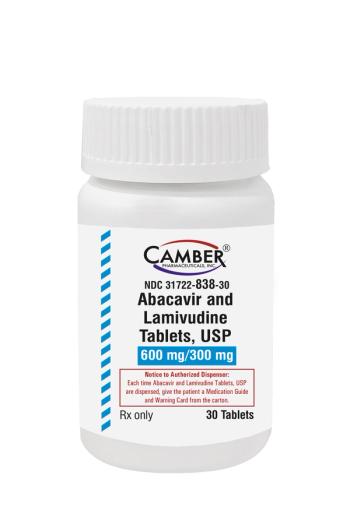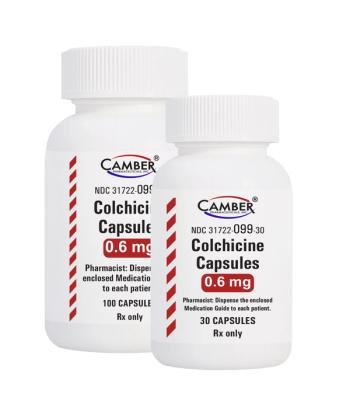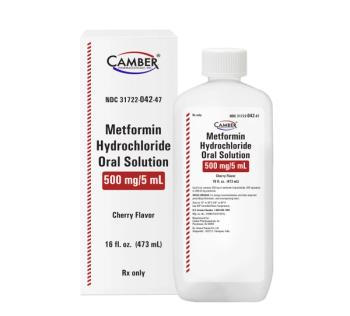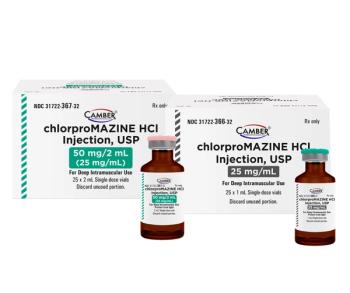
Summary of the PSJH System Pharmacy Clinical Service COVID-19 Response

The PSJH COVID Workgroup was formed after the concept arose out of the early work of physicians and pharmacists at PSJH.
Providence St. Joseph Health (PSJH) System Pharmacy Clinical Service (PCS) began COVID-19 related work in early March 2020. The PSJH COVID Workgroup was formed after the concept arose out ofthe early work of physicians and pharmacists at PSJH.
In late February, PSJH physicians began actively treating COVID-19 patients. At the same time, the PSJH System Pharmacy Clinical Service (PCS) started to provide clinical support to the system pharmacy COVID-19 daily update. A summary of these updates were distributed to the chief pharmacy officers (CPOs) for each of the seven regions covered by PSJH. Theses CPOs, in turn, shared this valuable information with the local facility pharmacy leaders.
In addition, the PCS director reviewed all articles concerning investigational COVID-19 treatment options published in English and Chinese literature, and provided regular updates to the pharmacy leadership team. A summary of this review was published by Pharmacy Times on March 25, 2020.1
Thereafter, PSJH formed its COVID-19 Pharmacy Clinical Council Workgroup (COVID Workgroup) on March 25, 2020. This group brought together the pharmacy leadership team, front-line physicians, pharmacists, and other health care professionals from all seven of the geographical regions served by PSJH. This group started to meet weekly on March 25, via secure web-based conferencing, to discuss newly emerging clinical data regarding treatment options, patient safety, and current research of COVID-19.
The COVID Workgroup is a multidisciplinary team built within the existing pharmacy clinical service structure. It collaborates with the PSJH System Pharmacy and Therapeutics (P&T) committee, Antimicrobial Stewardship (AMS) chairs, System Pharmacy Informatics Team, and the Infectious Disease Clinical Decision Team (CDT) & Critical Care CDT.
Each member of the workgroup comes from a mature clinical practice committee and is familiar with the workflow of the P&T. The result has been a synergistic reporting of professional experience and analysis, complemented by an ever-increasing body of clinical evidence.
The COVID Workgroup fully evaluated relevant guidelines from professional associations and governmental agencies.2-5 The workgroup also evaluated any relevant new clinical evidence that was published in the English and Chinese literature.
Thereafter, the workgroup drafted a guideline entitled “Considerations for COVID-19 Patients’ Ventilation Related Medications.”The AMS and ID CDT drafted a guideline entitled “Providence St. Joseph Health Guidance for SARS-CoV-2 (COVID-19) Positive in Non-pregnant, Hospitalized Adult Patients” and presented it to the COVID Workgroup.
After careful review, the workgroup voted to present both documents to the pharmacy clinical council and system P&T for system-wide adaptation. Both guideline documents were approved by system P&T for distribution within PSJH.
The two guideline documents are not binding. These documents are created for PSJH pharmacy division internal review relating to acute care patients admitted for COVID-19. The pharmacists are advised to work closely with their local physician teams, including but not limited to intensivists, pulmonologists, infectious disease (ID) and emergency medicine specialists, while treating COVID-19 patients.
The following disclaimer applies to both guidelines documents:
- All of the medications included in this document have potential adverse effects. Please work closely with your local physician teams, including but not limited to intensivists, pulmonologists, ID and emergency medicine specialists, while treating COVID-19 patients.
- Assessment of benefit versus risk must be made prior to any therapy. All treatment must be evaluated on a case-by-case basis, under the leadership of the medical team.
- Duration of paralysis, sedation and analgesia treatment are determined by the medical team who is in charge of the specific patient and will be patient specific. All sample algorithms herein do not specify treatment duration.
- Disease-specific order sets may contain one or more medications with parameters and/or dosing ranges that vary from these general guidelines. Any such variances have been clinically reviewed and should not be considered outside the standard of care.
- Priority should be given to any provider supplied parameters or disease specific order set instructions before referencing this document.
- In emergent situations, higher initial dose and rapid titration may be clinically indicated.
- This document does not endorse any specific treatment and is not a clinical practice guideline.
Drug shortages were another issue addressed by the workgroup. Due to the high demand and limited supply of sedation, analgesic, and neuromuscular blockade medications, the workgroup established the following methodologies to conserve key medications:
- Use lowest effective sedation levels. Interrupt and/or decrease dose in patients with excessive sedation.
- Evaluate sedation and weaning/taper goals frequently, at least daily.
- Use IV boluses of opioids and/or sedatives, use infusion sparingly.
- Maximize ventilator setting before using higher sedation levels.
- Consider NMBA IV bolus over infusion for ARDS patients.
- Consider NG or enteral use of opioids and sedatives.
- Consider adjunct therapies that can spare NMBA and sedative/analgesic agents.
- Consider multimodal therapy for pain control.
- The medications for COVID-19 investigational use were built into the PSJH electronic health record system to help guide prescribing. The access to these medications were regulated by local pharmacy leadership teams and study investigators.
They were restricted for non-formulary use and none of these medications were added to the PSJH system formulary as COIVD-19 treatments. However, a majority of the medications mentioned in the guidance documents, such as hydroxychloroquine, chloroquine, azithromycin, and tocilizumab were already on the PSJH formulary for other indications.
On March 5, 2020, remdesivir EPIC panels for investigational and compassionate uses were built and instructions sent to the system medical and pharmacy teams. Remdesivir was added to the electronic health record system under two categories: compassionate use and drug study use.
The dosage protocols and dosing regimen were provided by Gilead. The providers and pharmacists were trained to use special procedures to enter compassionate use orders. Two new entry options were built into the system for study use.
In light of the ever-changing landscape of COVID-19 treatments, the COVID Workgroup continues to frequently review and evaluate new treatment options, medication efficacy, safety and tolerability data, and update any recommendations with newly emerging evidence.
On March 8, 2020, PCS director and SPT chairs supported the use of multi-dose inhalers (MDI) instead of nebulizers for COVID-19 positive and PUI patients, in order to minimize patient room entry frequency and reduce staff risk. On March 10, 2020, Pharmacy, Respiratory, Nursing, & Infection Prevention submitted the recommendation to use metered-dose inhalers (MDI) for all patients under investigation of COVID-19 or COVID positive. This is approved by PSJH COVID-19 EOC on March 12.
On March 18, 2020, the PCS director evaluated evidence provided by the French Minister of Health, FDA and EMA, and determined that there is no clinically valid reason for COVID-19-positive patients to avoid non-steroidal anti-inflammatory drugs (NSAIDs). This information was communicated to the system medical and pharmacy leaders.
On March 21, 2020, the COVID-19 Reported Treatment Summary was drafted and distributed. The summary included the following medications. This summary reflected the best information available to us at the time.
On March 25, 2020, the COVID-19 Pharmacy Clinical CouncilWorkgroup was formed. The group voted that there was no sufficient data to recommend stop using ibuprofen for COVID-19-positive patients and recommended PSJH to follow FDA and EMA recommendations regarding NSAIDs use.
At the same time, the COVID Workgroup began working on supportive care regimen for ventilation patients. The supportive care regimen included medications for COVID-19-related sedation, neuromuscular blockade for ventilation (both induction and maintenance), and pain management.
On April 15, 2020, Considerations for COVID-19 Patients’ Ventilation Related Medications was finalized, and approved by the pharmacy clinical council and system P&T chairs. This document included pain management, sedation, and neuromuscular blockade medications for ventilated COVID-19 patients.
The disclaimer of this document stated that this document was created by the PSJH Pharmacy Clinical Council, under the leadership of the Critical Care CDT and the Pharmacy Governance Council. This document was for PSJH pharmacy division internal review relating to acute care patients admitted for COVID-19.
On April 22, the workgroup approved the recommendation from the PCS director: “No clear evidence of benefit for vitamin C and zinc in COVID-19.” On May 7, 2020, “Replace heparin SQ with enoxaparin SQ for DVT prophylaxis in acute care adult patients’ protocol” was approved by pharmacy clinical council and system P&T chair.
This protocol reduced COVID-19 patient DVT prophylaxis treatment dosing frequency by 50%. By May 11, 2020, the last revision of PSJH Guidance for SARS-CoV-2 (COVID-19) Positive in Non-pregnant, Hospitalized Adult Patients was published within PSJH.
On June 19, 2020, the COVID Workgroup in collaboration with AMS, ID CDT, critical care CDT, system P&T, and pharmacy clinical council actively reviewed new evidence from the RECOVERY trial, in order to determine the place of therapy for dexamethasone. A further decision awaits full data publication from the RECOVERY trial. The group is also actively working on removing hydroxychloroquine and chloroquine from all COVID-19 treatment protocols.
Reference
- Humphreys, S.Z. Front-Line Clinicians Investigate COVID-19 Treatments. Pharmacy Times. March 25, 2020. Retrieved from:
https://www.pharmacytimes.com/news/covid-19-an-overview-of-reported-investigational-pharmaceutical-treatments - World Health Organization. Clinical management of severe acute respiratory infection (SARI) when COVID-19 disease is suspected. Interim guidance.13 March 2020. Retrieved from:
https://www.who.int/publications-detail/clinical-management-of-severe-acute-respiratory-infection-when-novel-coronavirus-(ncov)-infection-is-suspected - Alhazzani W, Møller MH, Arabi YM, et al. Surviving Sepsis Campaign: Guidelines on the Management of Critically Ill Adults with Coronavirus Disease 2019 (COVID-19) [published online ahead of print, 2020 Mar 27]. Crit Care Med. 2020;10.1097/CCM.0000000000004363. doi:10.1097/CCM.0000000000004363
- The General Office of National Health Commission Office of State TCM Administration.Novel Coronavirus Pneumonia Diagnosis and Treatment Plan (Provisional 7th Edition). Retrieved from:
http://www.gov.cn/zhengce/zhengceku/202003/04/5486705/files/ae61004f930d47598711a0d4cbf874a9.pdf - ASHP Considerations for Prioritizing Medications for Mechanically Ventilated Patients in Intensive Care Units: http://in.providence.org/sss/departments/cps/Tools%20%20Resources/COVID-19/COVID-19%20PCC%20Workgroup%20Minutes/Tiered%20Medication%20Considerations%20for%20Mechanically%20Ventilated%20Patients_ASHP%20Resource.pdf
Newsletter
Stay informed on drug updates, treatment guidelines, and pharmacy practice trends—subscribe to Pharmacy Times for weekly clinical insights.

























